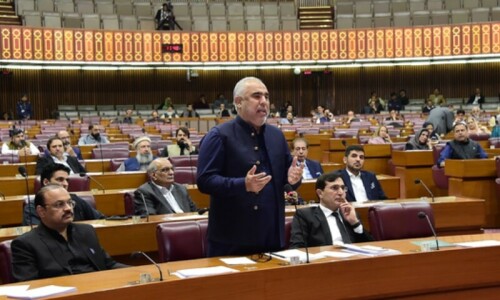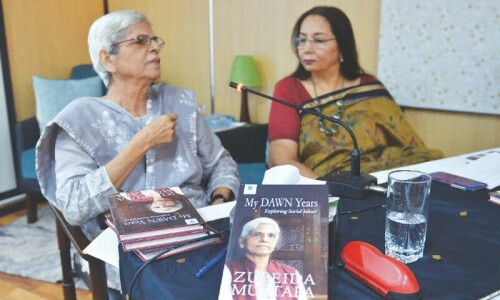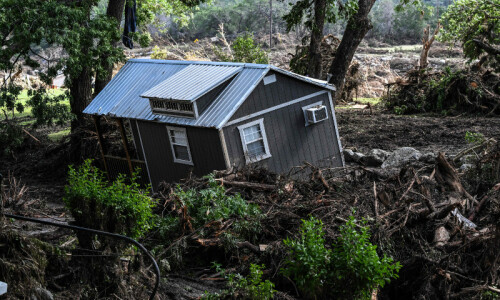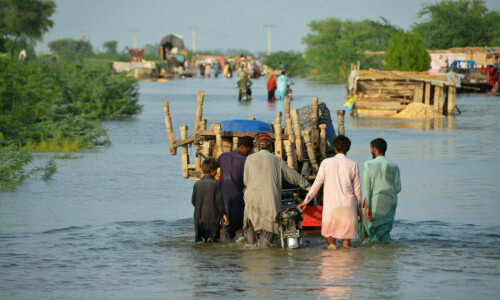WITH a long history of terrorist attacks in the country, it is a pity that, instead of taking steps to pre-empt, or at least minimise, them, the government begins to calibrate some kind of a response only after the event.
A day after the terrorist hijacking of the Jaffar Express ended, Prime Minister Shehbaz Sharif headed to Quetta on Wednesday to take stock of matters, while the Foreign Office shared details of external involvement in the incident. Mr Sharif reiterated the need for national unity at this time of crisis, and acknowledged that the lack of development in Balochistan was an obstacle to eliminating terrorism. The FO, meanwhile, reaffirmed the military’s earlier assertion that the train hijacking had been coordinated from Afghanistan, while adding that “India is … sponsoring terrorism” in Pakistan.
The state needs to make it amply clear to foreign actors seeking to harm Pakistan that their efforts will be thwarted. Earlier, the government had repeatedly been raising concerns about the Afghan Taliban’s lack of action regarding TTP sanctuaries in Afghanistan. Now, it must strongly take up the issue of BLA terrorists being allowed to entrench themselves across the border and plan attacks on Pakistan. The Taliban should know that unless action is taken against all anti-Pakistan terrorists on Afghan soil, bilateral ties will not improve.
Similarly, Indian involvement in stirring trouble in Balochistan is not unknown. The Kulbhushan Jadhav episode, and the dossier that Pakistan handed to the UN, detailing India’s malign activities, should not be forgotten. It is regrettable that India has yet to learn to live like a responsible neighbour, and refrain from attempts to destabilise regional states.
The PM must follow up his visit with action. His mention of development is important, but along with kinetic measures, a national reconciliation effort to bring Balochistan in from the cold is required — an effort which should be led by parliament in particular, and the political class in general. While there is a visible security angle to the Balochistan crisis, at its heart it is a political problem, which needs a political solution. Of course, there can be no justification for terrorism, and Pakistan’s territorial integrity is a red line. But a solely militarised response has failed to deliver, which is why counterterrorism efforts must be complemented by political outreach in Balochistan.
Nationalists who believe in working within constitutional parameters must be allowed to spearhead the political process in the province, while lawmakers from across the country must stand in solidarity with Balochistan and its people, pledging that they will be given the security, development and rights that all Pakistanis should have. Several ‘Balochistan packages’ have been launched previously. This time, the state and politicians must move beyond clichés, and pursue a lasting solution.
Published in Dawn, March 14th, 2025












































